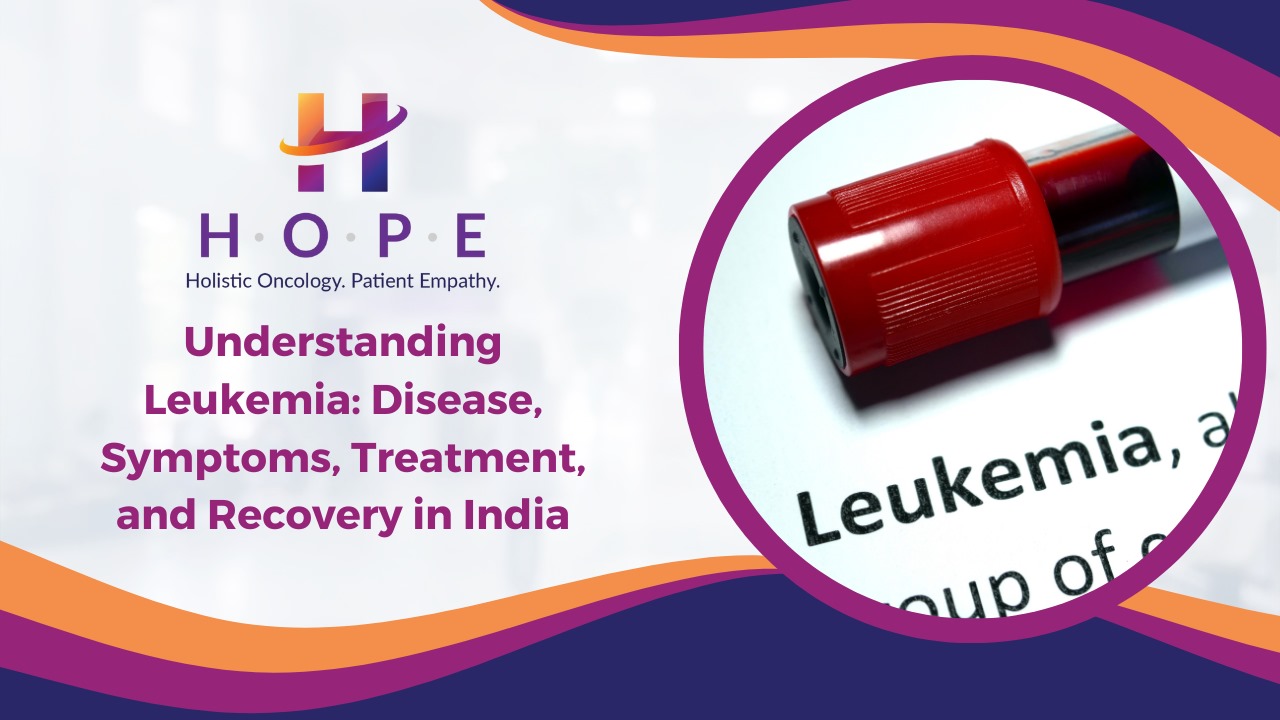Understanding Leukemia: Disease, Symptoms, Treatment, and Recovery in India
Leukemia, a type of cancer that affects the blood and bone marrow, poses a significant health challenge worldwide, including in India. While advancements in medical science have improved diagnosis and treatment outcomes, leukemia remains a complex disease with varying subtypes, symptoms, and treatment approaches. This article provides an overview of leukemia in the Indian context, covering its disease characteristics, common symptoms, available treatments, and the journey to recovery.
Leukemia in India:
Leukemia accounts for a notable portion of cancer cases in India, with an estimated incidence rate varying across different regions and population groups. Factors such as genetic predisposition, environmental exposures, socioeconomic status, and access to healthcare services influence the prevalence and outcomes of leukemia in the Indian population.
Types of Leukemia:
Leukemia is broadly classified into four main types based on the type of blood cells affected and their progression: acute lymphoblastic leukemia (ALL), acute myeloid leukemia (AML), chronic lymphocytic leukemia (CLL), and chronic myeloid leukemia (CML). Each type has distinct characteristics, treatment strategies, and prognosis.
Symptoms of Leukemia:
The symptoms of leukemia can vary depending on the type, stage, and individual factors. Common symptoms may include:
- Fatigue and weakness
- Fever or frequent infections
- Easy bruising or bleeding
- Bone pain or joint pain
- Enlarged lymph nodes or spleen
- Unexplained weight loss
- Pale skin or shortness of breath
Diagnosis:
Diagnosing leukemia typically involves a combination of medical history evaluation, physical examination, blood tests, and bone marrow biopsy. Specialized tests, such as flow cytometry, cytogenetic analysis, and molecular testing, help determine the subtype of leukemia and guide treatment decisions.
Treatment Options:
Treatment for leukemia aims to eliminate cancer cells, induce remission, and prevent relapse. Common treatment modalities include chemotherapy, targeted therapy, radiation therapy, and stem cell transplantation. The choice of treatment depends on factors such as the type and subtype of leukemia, disease stage, genetic mutations, overall health, and patient preferences.
Access to Treatment in India:
Access to leukemia treatment in India varies depending on factors such as geographic location, socioeconomic status, healthcare infrastructure, and availability of specialized medical facilities. While major cities may offer comprehensive cancer care centers with advanced treatment options, rural areas and underserved communities may face challenges in accessing timely diagnosis and treatment.
Recovery and Support:
The journey to recovery from leukemia can be physically and emotionally demanding for patients and their families. Multidisciplinary care teams, including oncologists, hematologists, nurses, psychologists, and support staff, collaborate to provide holistic care and support throughout the treatment process. Patient support groups, counseling services, and survivorship programs play a vital role in empowering patients, addressing psychosocial needs, and promoting a sense of community and resilience.
Leukemia presents a significant healthcare burden in India, requiring comprehensive strategies for prevention, early detection, and access to quality treatment. By raising awareness, improving healthcare infrastructure, enhancing diagnostic capabilities, and ensuring equitable access to treatment, we can advance the fight against leukemia and improve outcomes for affected individuals across India.
Through collaborative efforts between healthcare providers, policymakers, researchers, and community stakeholders, we can work towards a future where leukemia is more effectively managed, and patients experience better quality of life and long-term survival.

